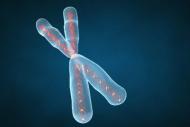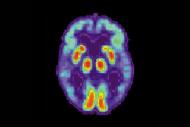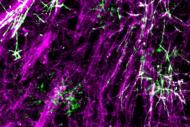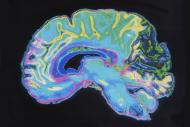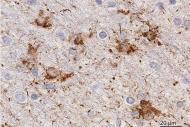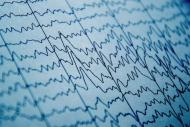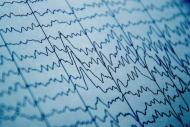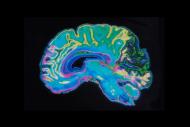UCSF scientists have made a significant advance toward understanding a rare genetic condition, almost exclusively affecting females, that results in a broad spectrum of neurodevelopmental deficits.
A simple blood test may soon be able to diagnose patients with two common forms of dementia – Alzheimer’s disease and frontotemporal dementia – and tell the two apart.
Plasma Marker May Flag Alzheimer’s as Cause of Mild Cognitive Impairment, UCSF-Led Study ShowsA blood test that may eventually be done in a doctor’s office can swiftly reveal if a patient with memory issues has Alzheimer’s disease or mild cognitive impairment and can also distinguish both conditions from frontotemporal dementia.
Study in Mice Adds to Evidence for Overlooked Role of Myelin in Long-Term Memory StorageFor a conditioned response to become long-lasting requires brain cells to increase amounts of an insulating material called myelin, which may serve to reinforce and stabilize newly formed neural connections.
Removing Surrounding Tissue Adds Ammunition to Battle Against Lethal Disease, UCSF-Led Study ShowsSurvival may more than double for adults with glioblastoma, if neurosurgeons remove the surrounding tissue as aggressively as they remove the cancerous core of the tumor.
UCSF researchers are working on deep-brain stimulation technology that can be customized to the patient’s brain make up and their own brain’s feedback.
Understanding the biological differences that drive distinct symptoms of Alzheimer’s disease could lead to more personalized patient care and potentially therapies targeted to patients’ individual needs.
Study of rats navigating a maze offers new insights into neurobiology of decision-making and imaginationIn a study of rats navigating a simple maze, neuroscientists at UCSF have discovered how the brain may generate such imagined future scenarios. The work provides a new grounding for understanding not only how the brain makes decisions but also how imagination works more broadly, the researchers say.
Study of Rats Navigating a Maze Provides New Insights into Neurobiology of Decision-Making and ImaginationIn a study of rats navigating a simple maze, neuroscientists at UCSF have discovered how the brain may generate such imagined future scenarios. The work provides a new grounding for understanding not only how the brain makes decisions but also how imagination works more broadly, the researchers say.
Study of Rats Navigating a Maze Provides New Insights Into Neurobiology of Decision-Making and ImaginationIn a study of rats navigating a simple maze, neuroscientists at UCSF have discovered how the brain may generate imagined future scenarios. The work provides a new grounding for understanding not only how the brain makes decisions but also how imagination works more broadly, the researchers say.

